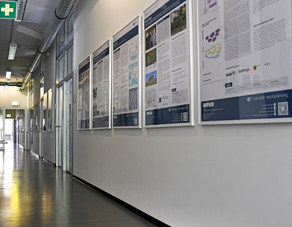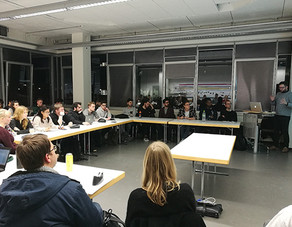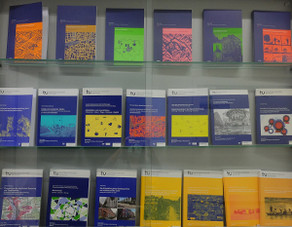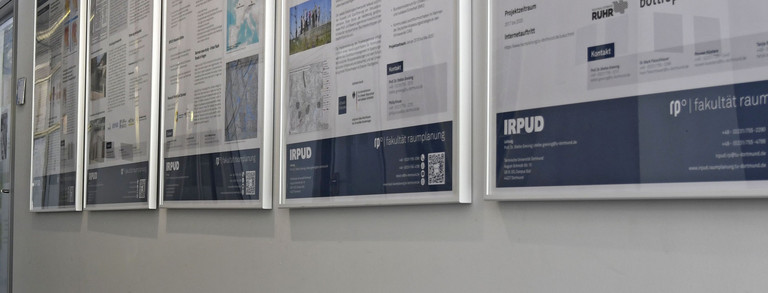MiTra-WA: Field Work in Sierra Leone Followed up by the Annual Consortium Meeting in Ghana
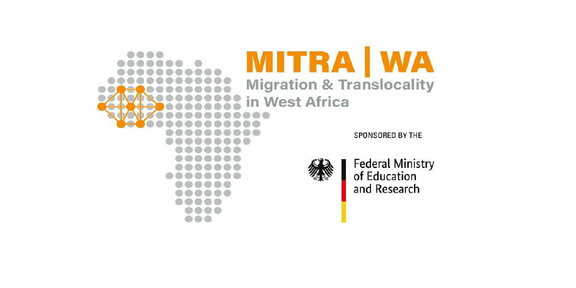
The MiTra-WA project (Migration and Translocality in West Africa) investigates rural-urban-linkages and (circular) migratory movements along these corridors in the context of climate change in West Africa. Together with the University of Passau, University of Ghana, Université de Ouagadougou (Burkina Faso), Kwame Nkrumah University of Science and Technology (Ghana), and University of Ibadan (Nigeria), researchers from the IRPUD and IPS research groups at the Department for Spatial Planning of TU Dortmund University conduct several case studies covering implications of translocality on agriculture, housing, transportation, food security, etc. The project runs from 2021 to 2024 and is funded by the Federal Ministry of Education and Research (BMBF) within the framework of the West African Science Centre for Climate and Adapted Land Use (WASCAL). WASCAL is a joint research and teaching initiative by BMBF and West African countries.
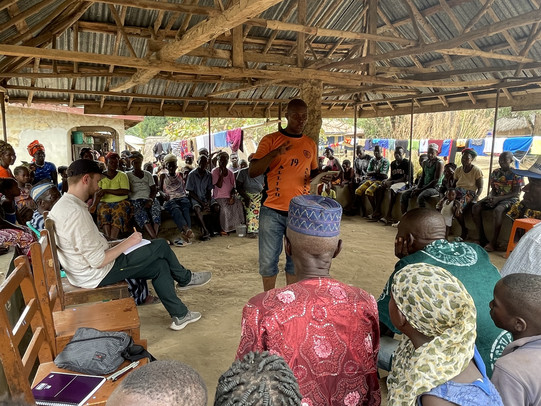
The Dortmund team works on a case study looking deeper into the implications of civil war and post-conflict migration on translocal connections and rural-urban migration in Sierra Leone. In the wake of a completed bi-local household survey in the migrants’ areas of origin and destination, the team travelled to Freetown for a week of fieldwork at the beginning of March. While the days in the capital of Sierra Leone were used to reach out to key policy stakeholders for further focus group discussions during the last year of the project, the focus was subsequently put on interviewing representatives of the villages of origin where the first part of the household survey had been undertaken. These interviews were conducted during a three-day stay in the rural Tonkolili District in the Northern Province of the country. The chiefdoms in this region are marked by some of the highest out-migration rates in the country. The Yoni and Kholifa Mabang chiefdoms show especially high migration towards Freetown, which is a three- to four-hour drive away. The interviewees described very openly what the opportunities and risks are for the parts of the household left behind in the village when a member migrates to bigger towns and cities. While this arrangement may improve food security during the rainy season, there are also major threats to agriculture and familial relationships. The Dortmund team and their international partners will investigate these issues more in-depth during the remaining months of the research project.
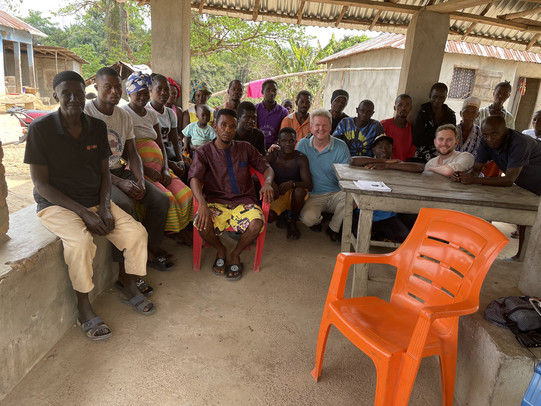
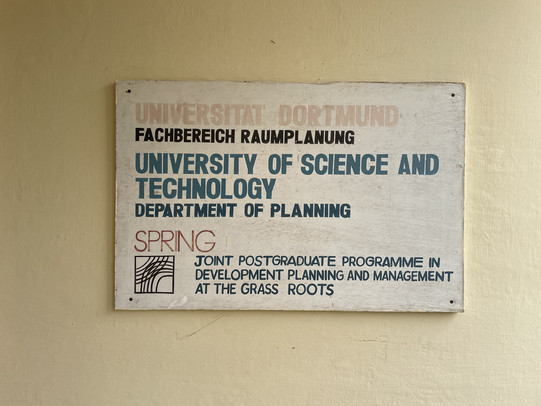
The start of the annual MiTra-WA consortium meeting coincided with the end of the fieldwork in Sierra Leone. For that reason, the team travelled on to Ghana as the meeting was held at Kwame Nkrumah University of Science and Technology at the heart of Ghana’s Ashanti Region in Kumasi. This two-day workshop offered a great occasion to present the progress of each partner’s work, discuss issues on the way to project completion, and brainstorm how to best address the tasks ahead for the last year of the research project. The meeting was also attended by the responsible project manager of WASCAL who offered greater insight into the kind of output the funding organisation is looking for – an excellent opportunity to guarantee a successful completion of the MiTra-WA project.
Further information about the project can be found here.



